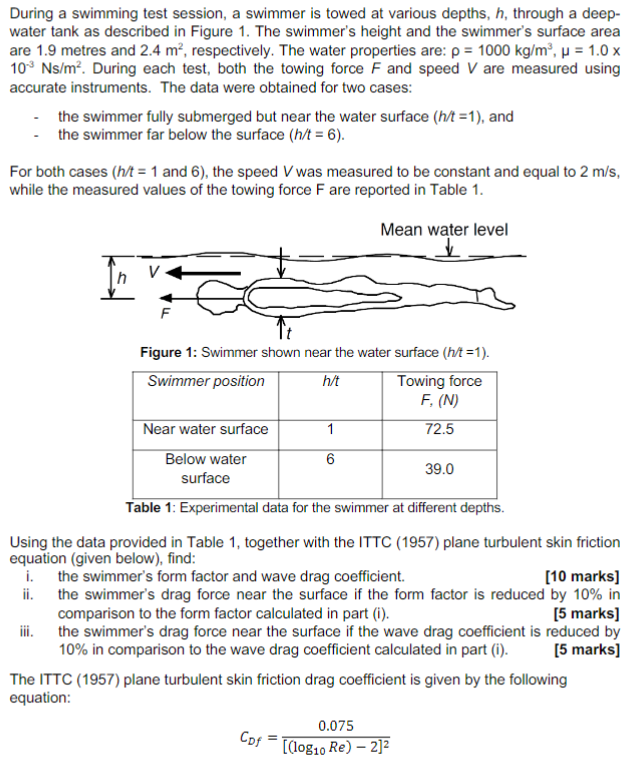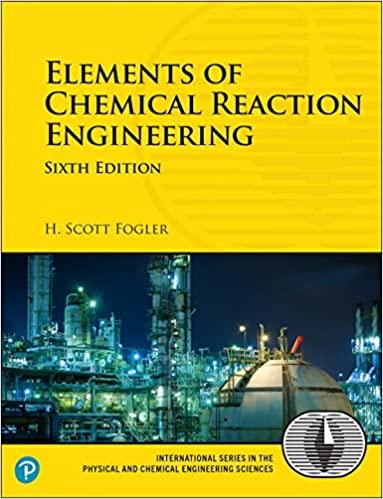Answered step by step
Verified Expert Solution
Question
1 Approved Answer
During a swimming test session, a swimmer is towed at various depths, h, through a deep- water tank as described in Figure 1. The

During a swimming test session, a swimmer is towed at various depths, h, through a deep- water tank as described in Figure 1. The swimmer's height and the swimmer's surface area are 1.9 metres and 2.4 m, respectively. The water properties are: p = 1000 kg/m, = 1.0 x 10 Ns/m. During each test, both the towing force F and speed V are measured using accurate instruments. The data were obtained for two cases: - the swimmer fully submerged but near the water surface (h/t = 1), and - the swimmer far below the surface (h/t = 6). For both cases (h/t= 1 and 6), the speed V was measured to be constant and equal to 2 m/s, while the measured values of the towing force F are reported in Table 1. iii. Mean water level Figure 1: Swimmer shown near the water surface (h/t =1). Swimmer position h/t Towing force F, (N) 72.5 1 6 Near water surface Below water surface Table 1: Experimental data for the swimmer at different depths. Using the data provided in Table 1, together with the ITTC (1957) plane turbulent skin friction equation (given below), find: i. the swimmer's form factor and wave drag coefficient. ii. 39.0 [10 marks] the swimmer's drag force near the surface if the form factor is reduced by 10% in comparison to the form factor calculated in part (i). [5 marks] the swimmer's drag force near the surface if the wave drag coefficient is reduced by 10% in comparison to the wave drag coefficient calculated in part (i). [5 marks] The ITTC (1957) plane turbulent skin friction drag coefficient is given by the following equation: 0.075 Cpf = [(log10 Re) - 2]
Step by Step Solution
There are 3 Steps involved in it
Step: 1

Get Instant Access to Expert-Tailored Solutions
See step-by-step solutions with expert insights and AI powered tools for academic success
Step: 2

Step: 3

Ace Your Homework with AI
Get the answers you need in no time with our AI-driven, step-by-step assistance
Get Started


